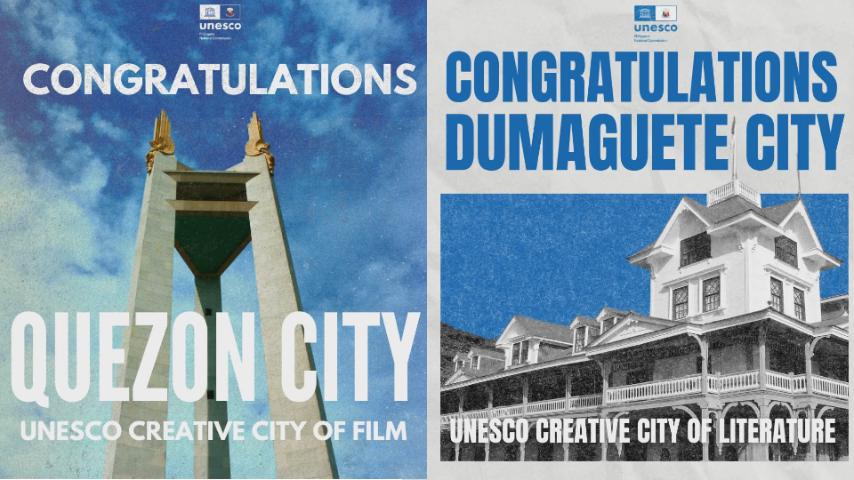
By Brian Campued
History has been made as Quezon City and Dumaguete City were finally inducted into the United Nations Educational, Scientific and Cultural Organization (UNESCO) Creative Cities Network (UCCN), recognizing their efforts at championing creativity as part of sustainable urban development.
The two cities are among the 58 new member cities of the UCCN that were announced by UNESCO in celebration of World Cities Day 2025 on Friday.
“We’re thrilled to announce that Quezon City is now a UNESCO Creative City of Film and Dumaguete City is a UNESCO Creative City of Literature!” the UNESCO-National Commission of the Philippine (UNACOM) said in a Facebook post.
“They make history as the first designations in their respective fields in the country,” the UNACOM added.
Joining Ho Chi Minh City (Vietnam) as Southeast Asia’s first Creative Cities of Film, QC was the cradle for major Philippine film studios in the 1950s and 1960s as well as contributed in the creative endeavors of renowned National Artists Lino Brocka and Fernando Poe Jr.
Up to this day, the “City of Stars” continues to be the central hub for filmmaking in the Philippines, serving as home to various production companies, screen enterprises, broadcast networks, and cinemas.
Meanwhile, Dumaguete now joins Jakarta in Indonesia as among the first Creative Cities of Literature—recognizing its role as providing a platform for literary voices and its continued support for fostering the Philippine literary landscape.
Other Philippine cities part of the UCCN are Baguio City, which was designated as Creative City of Crafts and Folk Art in 2017; Cebu City as Creative City of Design in 2019; and Iloilo City as Creative City of Gastronomy in 2023.
Since its launch in 2004, the UCCN now includes 408 cities in more than 100 countries.
This year, Architecture was added to the network’s seven existing fields: Crafts and Folk Art, Media Arts, Design, Film, Gastronomy, Literature, and Music.
In a press release, UNESCO Director-General Audrey Azoulay said the UCCN demonstrates that culture and creative industries can be concrete drivers of development.
“By welcoming 58 new cities, we are strengthening a Network where creativity supports local initiatives, attracts investment, and promotes social cohesion,” Azoulay stated.
QC Film City
In a statement, QC Mayor Joy Belmonte highlighted the legacy of filmmakers, artists, and storytellers who helped shape the city’s rich film heritage.
“This is for the workers behind the screen and the QCitizens who deserve access to quality films. Today, we celebrate a big achievement in Philippine cinema, but the work starts again tomorrow,” Belmonte said.
She likewise stressed the QC government’s efforts to support the local film industry and ensure the protection of film workers.
With the UNESCO designation, the city formally adopts the theme “QC Film City”—positioning itself as the heart of Philippine Cinema.
“QC Film City is now a name that will forever be etched in the legacy of every filmmaker, artist, and storyteller who has shaped our city’s vibrant film heritage,” Belmonte said.
-jpv
